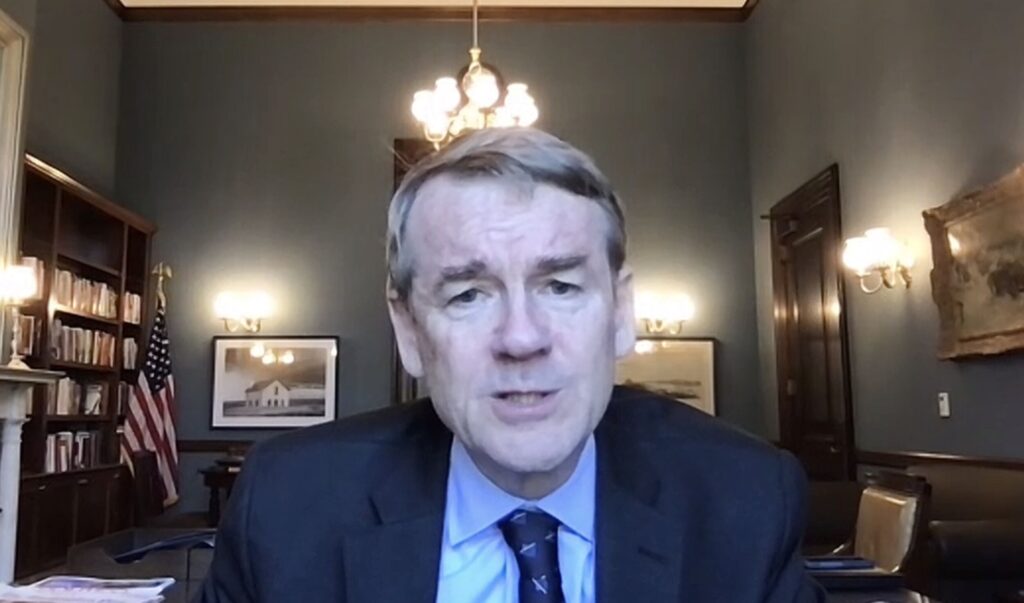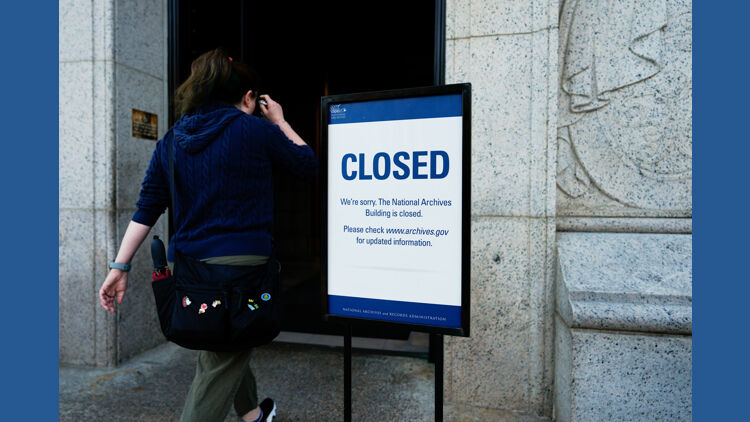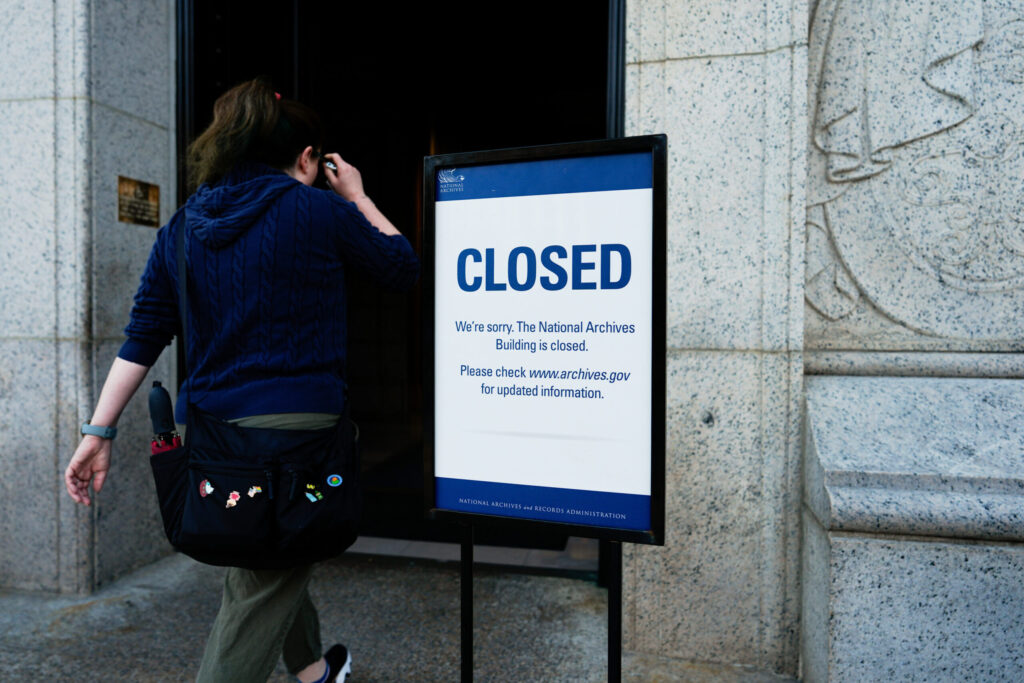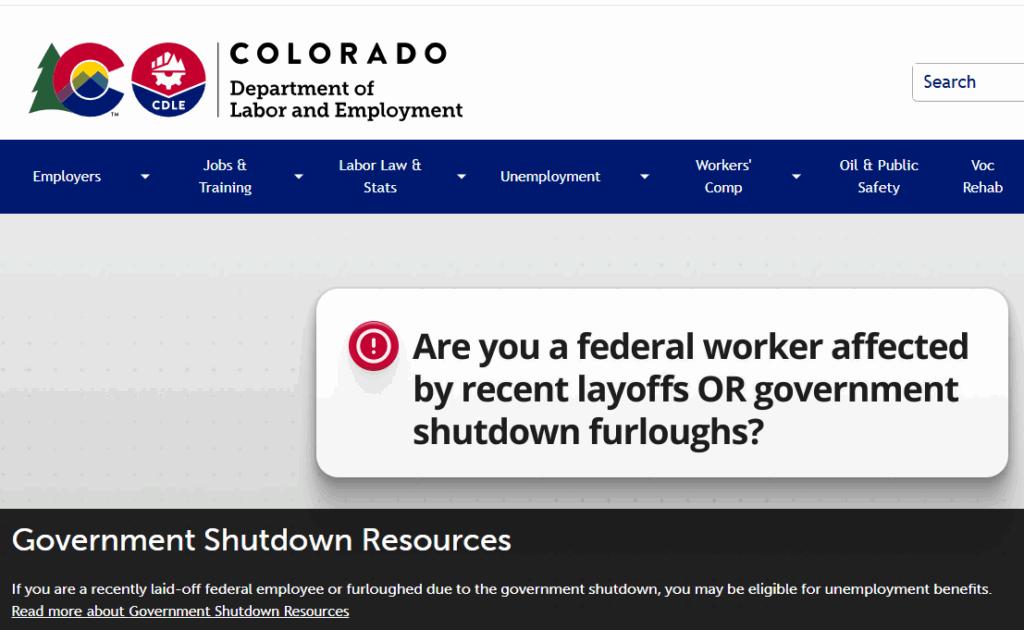Pot accounts: Time for bankers to light up?

by James Langford, The Washington Examiner
In 2016, a Republican sweep in races for Congress and the White House signaled the likelihood of changes in arcane banking regulations that elated Wall Street but were as familiar to the denizens of Main Street as the text of the Magna Carta or the 39 signatures on the U.S. Constitution.
The results of last Tuesday’s mid-term elections signal a potential shift in a far less esoteric rule: one that effectively prevents banks from opening accounts for marijuana distributors.
“There’s growing recognition that the policy that makes it difficult to nearly impossible for state-legal marijuana businesses to have access to banking services is outrageous,” said Rep. Earl Bluemenauer, the Oregon Democrat who helped form the Congressional Cannabis Caucus.
If the measure succeeds, it would be one of the most noticeable legislative actions affecting U.S. banks in the two years before the next presidential election, according to analysts and investors. Gridlock between a Democratic House and a Republican Senate would likely forestall any major bills that might hurt lenders’ bottom lines.
Democrats lack the clout needed, for example, to undo Republican tax cuts that buoyed large banks and expanded the federal deficit or alter a measure this year that eased oversight of regional lenders.
“There’s going to be no change in Dodd-Frank,” the law that tightened governance of lenders after billion-dollar bailouts during the 2008 financial crisis, Kenneth Leon, an analyst with CFRA Research, told the Washington Examiner earlier this year.
Narrower policy issues where the parties may be able to reach bipartisan agreement include reauthorizing the Terrorism Risk Insurance law, which expires at the end of 2020, said Aaron Cutler, a partner at the international law firm Hogan Lovells who worked as a senior policy adviser to former Republican House Majority Leader Eric Cantor.
The legislation, which provides federal assistance in covering losses from terrorist acts, bases payouts on an escalating damage threshold, set at $180 million as of next year and $200 million in 2020.
Lawmakers may also be able to address housing finance issues including the future of Fannie Mae and Freddie Mac, which back about half of U.S. home loans, and the national flood insurance program, he said.
The flood program, which provides insurance in coastal areas that private providers refuse to handle, has been kept alive through a string of short-term extensions since its last multi-year funding authorization expired in September 2017.
Rep. Maxine Waters, the California Democrat who’s likely to be the next chair of the House Financial Services Committee, wrote to House Speaker Paul Ryan, Minority Leader Nancy Pelosi and their Senate peers earlier this year highlighting the need for stability in the program – a situation that takes on heightened urgency after Hurricanes Michael and Florence struck the southeastern U.S. this fall.
The service is set to expire again at the end of this month.
“There’s a lot that can be done in the next Congress in a bipartisan fashion,” Cutler said, “as well as a robust oversight and investigations agenda.”
With a House majority, Democrats gain subpoena power and can begin reviews of anything related to President Trump, including his business relationships with banks like Deutsche, said Chris Krueger, an analyst with Cowen Washington Research Group, which has analyzed federal policy for the past four decades.
As ranking member of the House Financial Services Committee, Waters already pressedGermany’s largest bank for information on interactions between Trump and Russia in early 2017.
Near the end of that year, Special Counsel Robert Mueller reportedly subpoenaed records on accounts held by Trump associates and in late March, House Oversight Committee Democrats demanded details on a White House review of whether top adviser Jared Kushner, Trump’s son-in-law, violated ethics rules in connection with $500 million in loans from Wall Street to his family-owned firm, Kushner Cos.
One loan, for $325 million from Citigroup that was completed in March 2017, helped finance a group of office buildings in the Brooklyn, N.Y., neighborhood known as Dumbo, shorthand for “Down Under the Manhattan Bridge Overpass.”
Another, from Apollo Global Management for $184 million and completed in November of that year, was used to refinance a 31-story office building in the Chicago business district referred to as the Loop.
Both Apollo and Citi have said the loans were part of their normal operations, and not influenced by White House meetings with Kushner.
“It is critical that we bring accountability to the administration,” Waters said in a statement outlining her priorities if she becomes chairman. “For the last two years, Republicans in Congress have served as accomplices to Trump and have completely neglected Congress’ oversight responsibilities, enabling corruption and destructive policies to run rampant.”
Once Democratic lawmakers take control, they will also be able to wield indirect influence on regulations that have yet to be written governing mid-size banks, those with $100 billion to $250 billion in assets that gained a greater degree of freedom from oversight in a modification to the Dodd-Frank finance reform law championed by Senate Banking Committee Chairman Mike Crapo.
Still, most of Trump’s regulators are already in place and able to cut red tape without congressional intervention, on everything from the annual stress tests that determine whether banks can buy back stock and pay dividends to the Volcker Rule’s limits on proprietary trading, noted Jaret Seiberg of Cowen Washington.
More visible in news headlines would be the Congressional hearings at which a Financial Services Committee chaired by Waters, a frequent target of Trump’s Twitter feed, could force bank executives to testify.
“It’s status quo in policy, but in terms of politics, this will be a shift,” Justin Waring, a strategist with the chief investment office of Swiss lender UBS, told the Washington Examiner.
Waters “will be a pretty loud voice against deregulation and for increasing oversight of financials,” he explained, warning that “markets may at some point begin to worry about that tone and rhetoric being translated into action.”
The likelihood of Democratic proposals to tighten financial industry regulations passing the House and dying in the Senate will leave some investors concerned “about what dreams may come if Democrats get a victory in 2020,” Waring said.
But as shown by the Republican-controlled House’s passage of numerous repeals of Obamacare before the GOP took control of both the executive and legislative branches in 2016, such efforts don’t always translate into action when a party gains the power to act, he noted.
In the two years that Republicans dominated both the House and Senate, they were unable to repeal Obamacare completely, though they did overturn one of its critical underpinnings – the mandate that everyone, healthy or ill, obtain healthcare coverage.
Health care remains a divisive topic even now. Less so is the use of marijuana to improve it, particularly for patients with painful long-term illnesses like cancer.
Indeed, medical marijuana has become one of the driving forces behind federal efforts to loosen laws governing the drug, and the momentum increased when conservative Utah passed Proposition 2, a measure legalizing such usage.
While the Senate GOP, led by cannabis opponent Mitch McConnell, will likely smother efforts to comprehensively legalize marijuana, it may go along with efforts to protect medical use, provide an exemption to veterans and enact the SAFE Act, another measure that lets banks take on marijuana clients, said Seiberg.
“The key here is the concern from law enforcement about cannabis being an all-cash business,” he said.
That’s a situation that has already created high-profile complaints, not least when Nikki Fried, a candidate who trailed her Republican rival for Florida agriculture commissioner by just 12,000 votes last week, publicly accused Wells Fargo of shutting down her campaign’s account because she supported patient access to medical marijuana.
The San Francisco-based lender blamed the federal prohibition of marijuana usage and sales that bars national banks from serving customers engaged in the business or related activities.
By offering a remedy, the SAFE act – an acronym for Secure and Fair Enforcement – skirts the issue of legalization,” Seiberg said. “Instead, it frames this as a public safety and law enforcement question. It is why we believe the House will pass this legislation in the next Congress and it could get attached to a broader bill.”
That’s Blumenauer’s take as well.
“There is nobody that I have met who is a champion of coercing state-legal marijuana businesses to have backpacks and shopping bags full of $20 bills to pay their state taxes,” he said. “We’ve got a dynamic that will enable people to take simple common-sense steps that are strongly supported not just by the industry, but by the public.”














